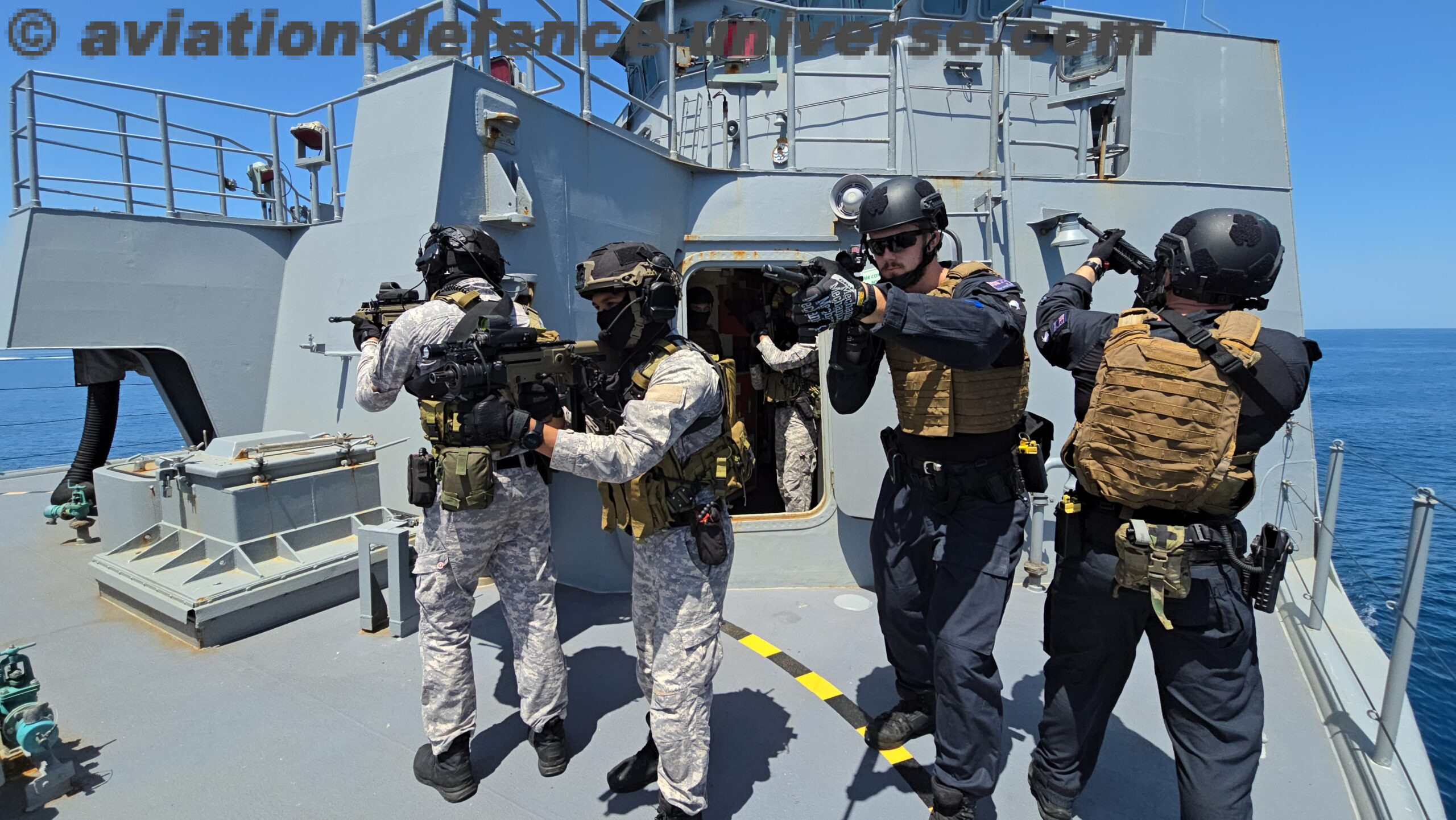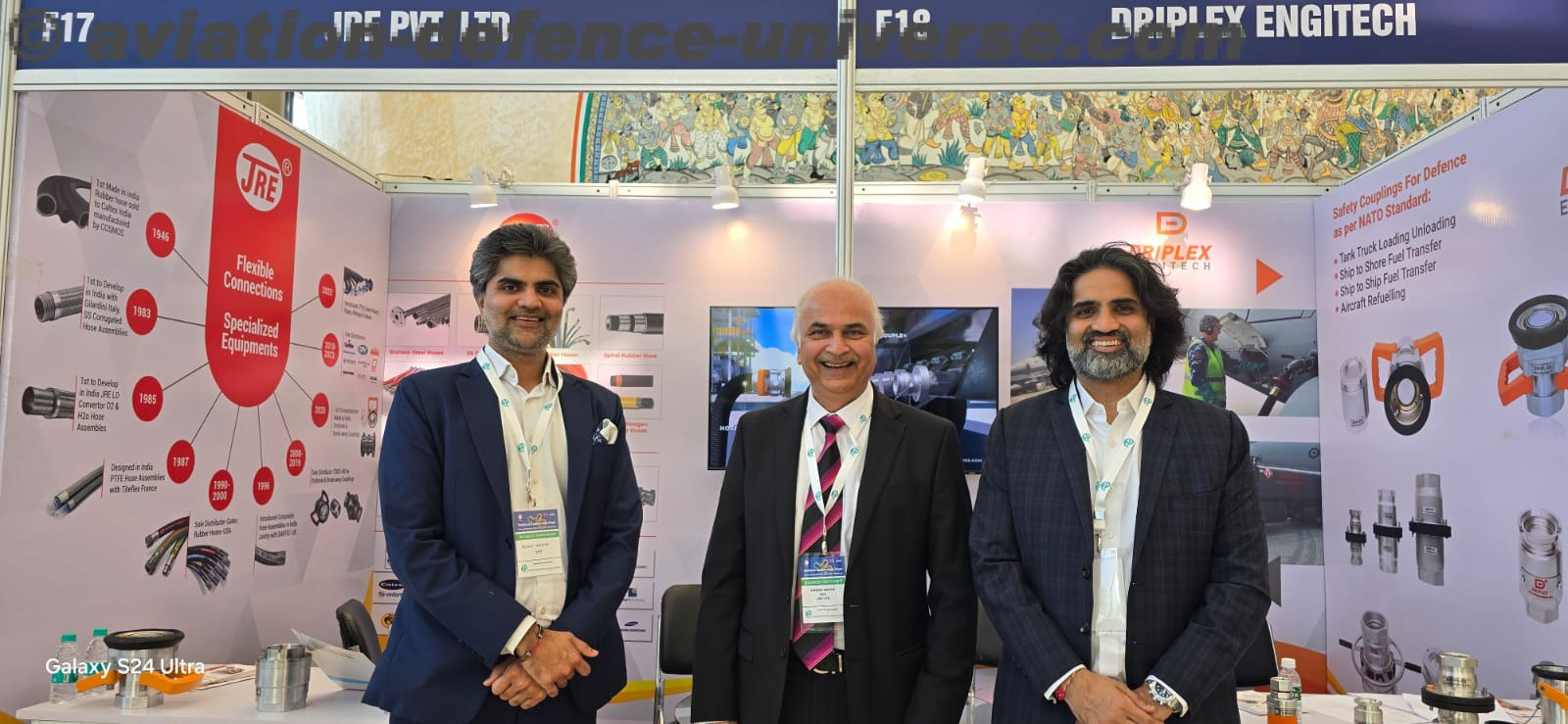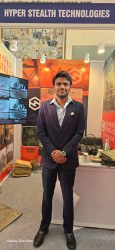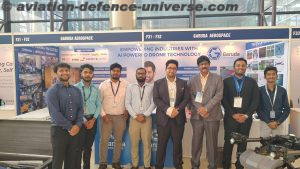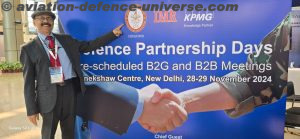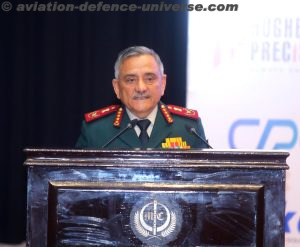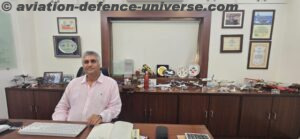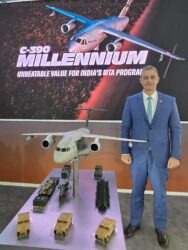- India’s First Manufacturer of NATO-Standard Couplings Sets Sights on Defence
By Sangeeta Saxena
New Delhi. 18 December 2024. Very rarely in my journalistic career have I done an individual interview but felt I had interviewed two generations of dedicated and enthusiastic professionals. At a recent defence event organized by CENJOWS ADU caught up with Vivek Mehta, son of Vikram Mehta and brother of Puneet Mehta, the trio behind JRE—a third-generation company making waves in the industrial hoses and couplings sector. With a legacy dating back to post-independence India, JRE has become a pioneer in the manufacturing of composite hoses and dry break couplings. In this interview, Vivek talks about the company’s journey, its cutting-edge products, and its plans to enter the Indian defence market.
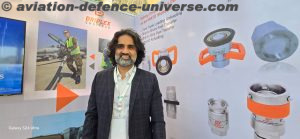 ADU. Can you trace JRE’s journey till it’s foray into defence?
ADU. Can you trace JRE’s journey till it’s foray into defence?
Vivek Mehta. I’m Vivek Mehta, son of Vikram Mehta and brother of Puneet Mehta. The three of us are actively involved in running JRE, a third-generation company that my grandfather founded post-independence. Initially, we started with manufacturing hoses and became the first company in India to produce composite hoses and stainless steel hoses. Later, we diversified into manufacturing dry brake couplings and breakaway couplings, which we previously imported from Sweden. Today, we are the fourth manufacturer in the world to produce dry brake couplings that meet NATO Standard 3.56, predominantly used by NATO forces.
ADU. Is this your first time showcasing of your products for the defence sector?
Vivek Mehta. Yes, this is our debut in the Indian defence market. While we already export to over 30 countries, we’ve never sold directly to the defence forces in India.
ADU. What are the key products you’re showcasing here?
Vivek Mehta. We’re showcasing a range of hoses under the JRE brand and our specialized couplings. This includes dry brake couplings which are built to NATO Standard 3.56 for the Army, Navy, and Air Force. We also show here breakaway couplings which are safety couplings that ensure seamless operation while preventing accidents. Aviation couplings designed as per ISO 45, which aligns with NATO standards are also displayed. We’re proud to say that we’re the only Indian company manufacturing these couplings. Globally, the other manufacturers are based in Sweden, the UK, and Germany.
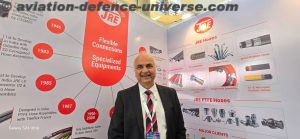 ADU. Do you have products tailored to all three forces—Army, Navy, and Air Force?
ADU. Do you have products tailored to all three forces—Army, Navy, and Air Force?
Vivek Mehta. Yes, our products cater to all three forces. For the Navy, we offer hoses and couplings; for the Air Force, we provide couplings and can even manufacture aviation hoses currently imported from Germany. For the Army, we also supply couplings.
ADU. Have you explored the homeland security and paramilitary markets?
Vivek Mehta. Not yet. While our products could be useful for homeland security and paramilitary forces, we haven’t ventured into that segment so far.
ADU. How do you see your market in India? Should you focus on OEMs or direct sales to the defence forces?
Vivek Mehta. That’s a challenge we’re still figuring out. This is our first foray into the defence sector, and we’re exploring whether to target OEMs or sell directly to the armed forces. OEMs understand the technical specifications required by the forces and can guide us on integrating our products into their systems. However, selling directly to the forces could help us introduce our technology more effectively.
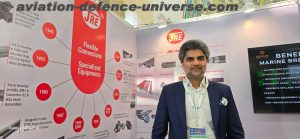 ADU. What’s your experience with global markets, and how does that influence your strategy for India?
ADU. What’s your experience with global markets, and how does that influence your strategy for India?
Vivek Mehta. Globally, we export to over 30 countries, including Europe, the UK, the US, Canada, South America, Australia, New Zealand, the Far East, and even China. However, we operate through distributors abroad since direct small-quantity sales are not viable for us. Our international success proves the quality and reliability of our products, and we believe this will be a strong selling point for Indian forces as well.
ADU. Where are your offices and manufacturing facilities located?
Vivek Mehta. Our headquarters is in Mumbai, while our manufacturing facilities are in Baroda.
ADU. How do you view initiatives like the B2G (Business-to-Government) meetings at this event?
Vivek Mehta. It’s a fantastic idea. For companies like us, who are new to the defence sector, it simplifies the process of understanding how the system works and whom to approach. It’s a great starting point.
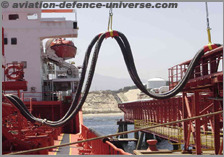 ADU. Anything you’d like to add before we wrap up?
ADU. Anything you’d like to add before we wrap up?
Vivek Mehta. Not much, except to say that we’re excited about introducing our technology to the Indian defence market. It’s a challenging space, but we see immense potential for growth here.
JRE is a shining example of Indian innovation making its mark on the global stage. With decades of experience in manufacturing high-quality hoses and couplings, the company is now poised to bring its expertise to the Indian defence sector. Their products, built to NATO standards, could revolutionize operations for the Army, Navy, and Air Force. As JRE navigates its entry into this new market, its global success story is sure to inspire confidence among Indian stakeholders.
As told to Sangeeta Saxena


































